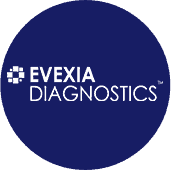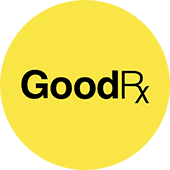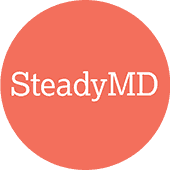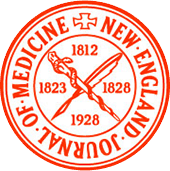Alzheimer’s disease is the most common type of dementia. Although nearly everybody has heard of the disease, few people know what Alzheimer’s really is, what the symptoms are, and whether it can be prevented.
Generally, Alzheimer’s disease and dementia are terms that are often used interchangeably, they’re not the same thing. Dementia encompasses a number of different conditions that negatively affect your ability to think and behave. Alzheimer’s disease is only one type of dementia, making up 60 to 80 percent of dementia cases.
There is no cure for Alzheimer’s disease, but there are treatments that can slow progression and accommodations you can make if you or a loved one has this condition. Recent research has also suggested a few preventative measures we can take to avoid Alzheimer’s disease.
What is Alzheimer’s disease?
Alzheimer’s disease is a chronic condition, and there is no cure. Many people mistakenly think that this condition only affects older people – while those over 65 years of age are more likely to get it, younger people can get it too.
What causes Alzheimer’s?
There’s a lot about Alzheimer’s disease that we don’t know. For example, experts haven’t discovered exactly why some people get the condition while others do not. However, there seems to be a genetic component to it.
You are more at risk of developing Alzheimer’s disease if you’re over 65 years old and if you have an immediate family member with the condition. Even so, many people with a family history of Alzheimer’s never develop the disease.
What are the symptoms of Alzheimer’s disease?
Forgetfulness is the most commonly known symptom of Alzheimer’s disease, but the condition doesn’t just affect your memory. It also affects your cognitive ability (in other words, your ability to think and reason), as well as your behavior.
The symptoms of Alzheimer’s disease differ from stage to stage.
Early symptoms of Alzheimer’s disease
Early symptoms of Alzheimer’s disease might seem like mild forgetfulness at first. Later, it will begin to affect life more noticeably.
These symptoms can include:
- memory loss
- misplacing items
- difficulty with language, speech, and writing
- difficulty with common, familiar tasks
- difficulty understanding and engaging in conversation
- difficulty with problem-solving
- difficulty with spatial recognition
- feeling disoriented in familiar places
- taking longer to complete familiar tasks
- forgetting the date, time, and place you’re in
- decreased judgment
- mood and personality changes
- withdrawal from loved ones
- increased anxiety
It is usually in this stage that the condition is diagnosed.
Moderate symptoms of Alzheimer’s disease
As the disease progresses, symptoms can include:
- difficulty recognizing loved ones
- increased anger and irritability
- difficulty with learning new tasks
- difficulty navigating new places or situations
- repeating speech
- hallucinations or delusions
- paranoia
- loss of impulse control
Severe symptoms of Alzheimer’s disease
In the later stages of Alzheimer’s, typically after it has been diagnosed, the symptoms can include:
- loss of physical function
- extreme difficulty communicating
- seizures
- difficulty swallowing
- incontinence
- weight loss
- skin infections
Without a professional personally examining you, there’s no telling how fast or slow Alzheimer’s can progress. Some people experience mild symptoms for many years, while others progress much faster.
How is Alzheimer’s diagnosed?
There’s no definitive way to diagnose Alzheimer’s disease. However, certain examinations and tests can be used to assess your cognitive function. Your doctor will likely test for other conditions in order to rule other causes out.
Typically, you’ll start by explaining your symptoms to the doctor. They’ll ask about your family medical history, your personal medical history, and your current health and lifestyle.
After this, your doctor will do further tests to help determine whether you have Alzheimer’s disease.
How do you test for Alzheimer’s disease?
Your doctor might do the following tests:
- A mental status test to test your memory
- A physical exam, including checking your blood pressure and possibly taking urine or blood samples for testing
- A neurological exam, to rule out other conditions (such as a stroke)
If necessary, your doctor might also order brain-imaging studies, which create pictures of your brain. This can include:
- Magnetic resonance imaging (MRI)
- Computed tomography (CT) scan
- Positron emission tomography (PET) scan
Your doctor may also do blood tests to check for genes relating to Alzheimer’s disease.
As mentioned, none of these tests are definitive – but they would help your doctor narrow down the possible causes of your symptoms.
How is Alzheimer’s treated?
Although there’s no cure for Alzheimer’s, there are some treatments that might help slow the progression of the disease.
Your doctor might prescribe medications such as donepezil (Aricept) or rivastigmine (Exelon). These drugs help you maintain high levels of acetylcholine – a neurotransmitter that can help aid your memory.
For more advanced Alzheimer’s, your doctor might prescribe memantine (Namenda). Memantine can block the effects of excess glutamate, which is a brain chemical that damages brain cells. Those with Alzheimer’s disease have higher levels of glutamate.
Antidepressants, anti-anxiety medication, and antipsychotics could also be prescribed to help manage the symptoms.
Other treatments could include lifestyle changes that will make it easier for you to focus on tasks, avoid stress, and soothe confusion. This could include removing stressful elements from your life, rearranging household furniture to make it easier to navigate, and engaging in relaxing activities.
Alternative treatments
There are some alternative treatments. Many of these have not been studied thoroughly but might be recommended by your doctor as a complementary treatment. They include:
- Dietary supplements like omega 3, coenzyme Q10, and coral calcium
- Acupuncture and aromatherapy
- Light therapy (to help restore the sleep-wake cycle)
- Herbs like ginkgo biloba
Hopefully, future research will help verify whether these treatments really can benefit those with Alzheimer’s disease.
Can you prevent Alzheimer’s disease?
Although you can’t change your genetics and age – which seem to be the risk factors for Alzheimer’s – research has shown that certain lifestyle changes can reduce your risk of developing Alzheimer’s.
Maintain a healthy diet
Some evidence suggests a plant-based diet might help prevent Alzheimer’s disease, while others suggest that a Mediterranean diet could lower your risk.
A Mediterranean diet includes very little red meat and little processed foods. Instead, the following foods are eaten in abundance:
- fruits
- vegetables
- fish
- nuts
- olive oil and other healthy oils
- other healthy fats
- whole grains
Some studies have also suggested that antioxidants could prevent cognitive decline. Animal studies suggest berries, which are high in antioxidants, can improve brain function.
Get enough B vitamins
Folic acid and B vitamins, including vitamin B6 and vitamin B12, might lower your levels of homocysteine.
Homocysteine is an amino acid that is naturally found in your blood. Research has suggested that high levels of homocysteine could be a risk factor for Alzheimer’s disease.
Although this hasn’t been studied extensively, you might want to eat foods high in folate and B vitamins to lower your homocysteine levels. A supplement might also help. Since folate and B vitamins are essential for a range of health functions, it can’t hurt – just don’t take more than the recommended amount per day!
Quit smoking
Smoking has a range of negative impacts on your health. It can also increase your risk of developing dementia.
If you feel like it’s too late, it’s not! Studies show that former smokers have a lower risk of developing the condition than current smokers.
Mental activity
Keeping your mind active can prevent Alzheimer’s disease, according to research. Engaging in mental activity can contribute to your cognitive reserve. When you constantly learn, you develop additional neural pathways in your brain – which helps with brain function.
Mental activities could include:
- Puzzles, like crossword puzzles, jigsaw puzzles, sudoku, and riddles
- Learning new languages
- Playing card games
- Reading
- Learning new skills
- Attending lectures
- Visiting museums and exhibitions
There are many ways to exercise your brain. Find a few things you enjoy and engage in them often!
Exercising
Exercise your body as well as your brain. Some evidence suggests that frequent exercise could prevent Alzheimer’s disease. It’s hard to say exactly how much you should exercise, but many organizations suggest at least 30 minutes a day. This can include something as gentle as a short walk, swim, or cycle.
Although there’s no way to be 100% sure you’ll never develop Alzheimer’s disease, making smart lifestyle changes might reduce your risk. If you’re hoping to improve your lifestyle, Knew Health offers Personalized Health Coaching to all our Members in addition to discounted supplements, lab work, fitness resources, and more.
RESOURCES
- 10 early signs and symptoms of Alzheimer’s. (n.d.).
alz.org/alzheimers-dementia/10_signs - Alzheimer’s diagnosis. (n.d.).
alzinfo.org/articles/diagnosis/ - Alzheimer’s disease. (2018).
cdc.gov/chronicdisease/resources/publications/aag/alzheimers.htm - Diagnosis. (n.d.).
alz.org/alzheimers-dementia/diagnosis - How is Alzheimer’s disease treated? (2018).
nia.nih.gov/alzheimers/publication/alzheimers-disease-medications-fact-sheet - Medical tests. (n.d.).
alz.org/alzheimers-dementia/diagnosis/medical_tests - Treatments. (n.d.).
alz.org/alzheimers-dementia/treatments - What is Alzheimer’s? (n.d.).
alz.org/alzheimers-dementia/what-is-alzheimers
Disclaimer: This information is being provided to you for educational and informational purposes only. It is being provided to educate you about how to take care of your body and as a self-help tool for your own use so that you can reach your own health goals. It is not intended to treat or cure any specific illness and is not to replace the guidance provided by your own medical practitioner. This information is to be used at your own risk based on your own judgment. If you suspect you have a medical problem, we urge you to take appropriate action by seeking medical attention.









































